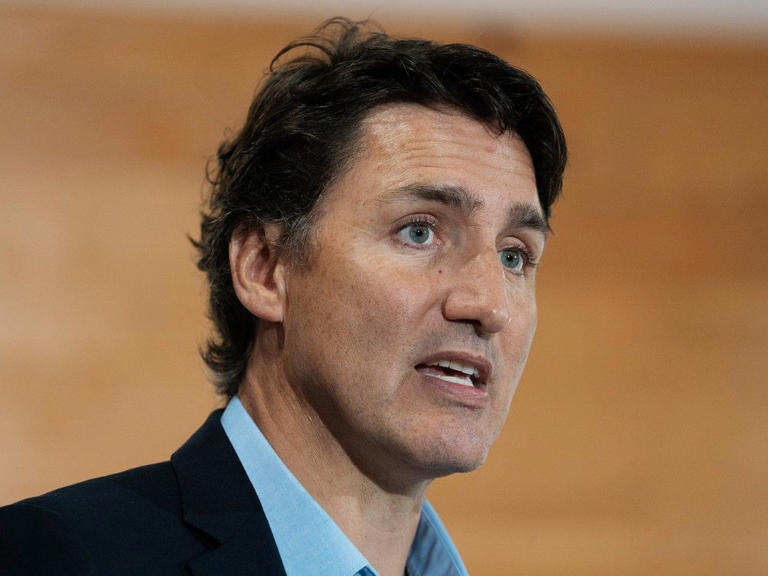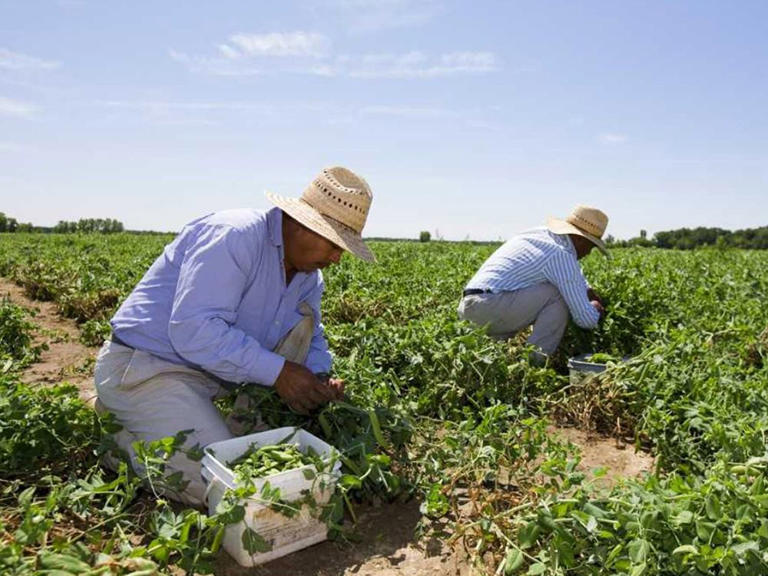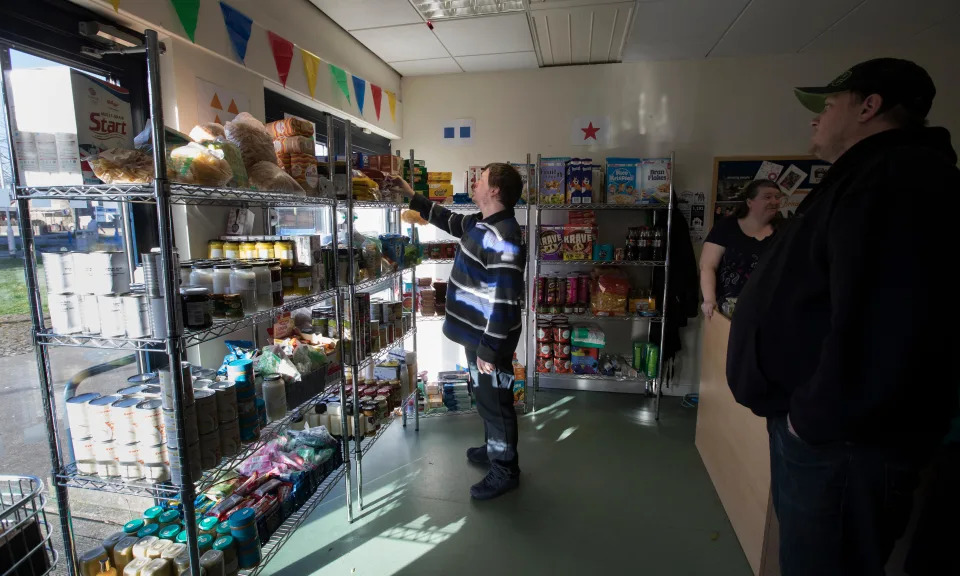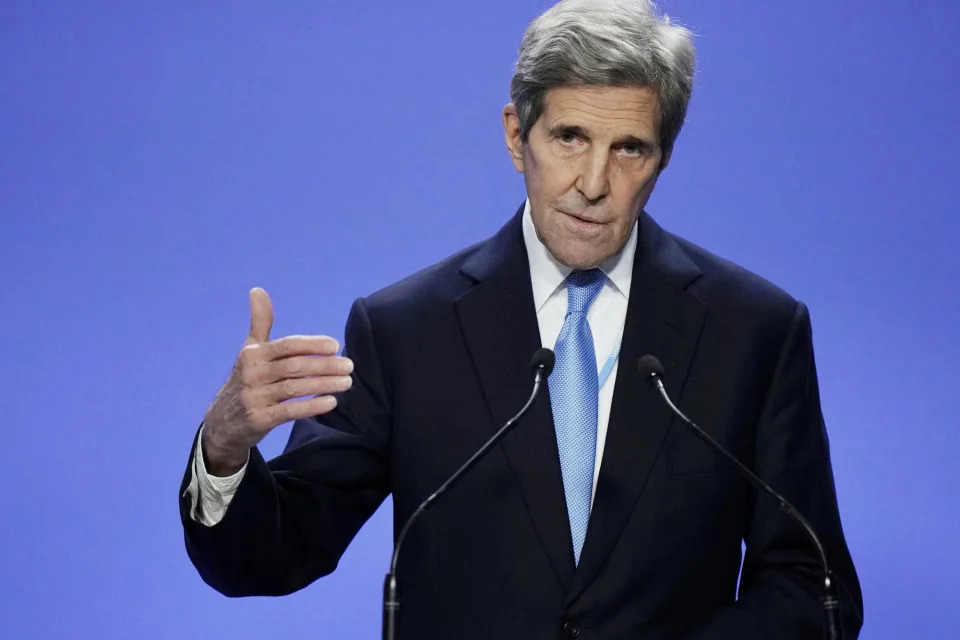The Canadian Press
Thu, August 24, 2023
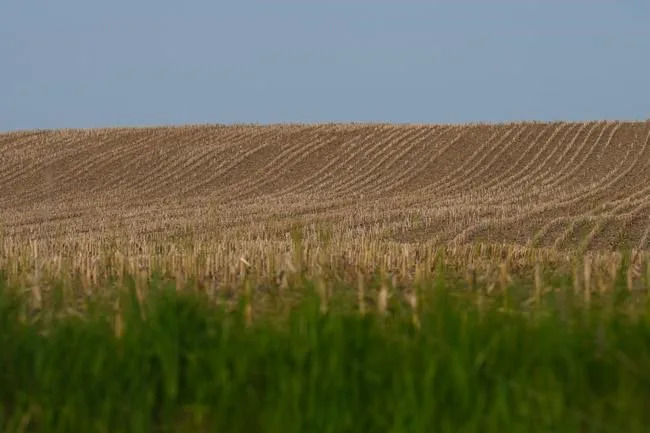
TORONTO — Ontario Green Party Leader Mike Schreiner called Thursday for a public inquiry into Greenbelt land removals, saying the resignation of a top political staffer is a start, but it's far from the end.
A report this month from the auditor general found that developers who owned 15 sites of land that the Progressive Conservative government removed from the protected Greenbelt area last year now stand to see those properties rise in value by $8.3 billion.
Bonnie Lysyk found that developers who had access to Municipal Affairs and Housing Minister Steve Clark's chief of staff at an industry event wound up with 92 per cent of the land that was removed from the Greenbelt for housing.
Schreiner said Thursday that the report answered some questions, but raised even more.
"People want transparency, they want accountability, and they want to know the truth, and the only way that we're going to get that level of transparency and accountability is through an independent public inquiry, so the public can see the evidence themselves, so they can hear the testimony directly from those involved," Schreiner said at a press conference.
"The people of Ontario deserve to know how wealthy insiders could hand over an envelope that led to government policy decisions with windfall profits of $8.3 billion going to a handful of wealthy elite speculators."
But Premier Doug Ford's office quickly shot down the idea of a public inquiry.
"No," a spokesperson wrote when asked if the premier would consider calling one.
Meanwhile, the RCMP said Wednesday they have started to look into the matter, weighing whether to launch an investigation by evaluating information sent over by the Ontario Provincial Police. The provincial force had been assessing information for months and turned the potential case over to the Mounties to avoid any perceived conflicts of interest.
News of the potential police probe came a day after Ryan Amato resigned as Clark's chief of staff, saying he is confident he acted appropriately but that he didn't want to be a distraction to the government's work of getting housing built.
But the NDP pointed Thursday to a reference in the auditor general's report to a second staffer, saying it raises more questions and makes Clark's assertions that he did not know the process was being controlled by Amato even more unbelievable.
All but one of the 22 Greenbelt sites considered for removal — 15 were ultimately selected — were brought forward by Amato instead of the team of civil servants he struck for that purpose, Lysyk found.
Of those 22 sites, Amato said nine were brought to his attention by developers or their representatives and five were identified by a deputy chief of staff who was working on a review of municipal official plans, Lysyk wrote.
NDP municipal affairs critic Jeff Burch said Ontarians need more information.
“Who was this staffer that had a role in carving up five parcels of the Greenbelt?" he wrote in a statement. "What was their role?"
Ivana Yelich, Ford's deputy chief of staff of stakeholder relations, media relations and forward planning, said in a statement that Clark's deputy chief of staff wasn't involved in any decision making on Greenbelt changes.
Some of the public submissions received in the official plan review the staffer was working on included requests for removal of lands from the Greenbelt, so the staffer sent them to the civil servants working on the Greenbelt project, Yelich said.
Lysyk's report also found that political staff received emails from lobbyists on their personal accounts, sometimes forwarded emails from their government accounts to personal ones, contrary to public service guidelines, and were regularly deleting emails, contrary to the rules.
The Office of the Information and Privacy Commissioner of Ontario said Thursday that retention of government records is a key component of ensuring transparency and accountability of government decisions.
"The IPC is gathering relevant information and considering next steps," the office said in a statement.
This report by The Canadian Press was first published Aug. 24, 2023.
Allison Jones, The Canadian Press
Story by The Canadian Press •
Following the release of Auditor General Bonnie Lysyk’s report exposing the broken process that resulted in the removal of 15 parcels of land from the Greenbelt, the Alliance for a Liveable Ontario (ALO), an advocacy super group made up of prominent organizations in the environment, housing and labour sector, is calling on Lysyk to keep digging.
ALO, which counts Ontario Nature, Environmental Defence and CUPE Ontario among its membership, in a letter sent last week has requested Lysyk launch a new investigation, this time, into the laundry list of planning policy changes and development legislation alterations made since Premier Doug Ford took office in 2018. The request extends to the Integrity Commissioner, asking him to include other planning policies in his investigation that is currently ongoing.
“Transparent, defensible and unbiased land use planning is a cornerstone of a healthy economy and democracy. We are concerned that, given the revelations from the Auditor General’s report about the Greenbelt land removal, there is a disturbing possibility that other recent provincial land use planning policies may have and may come from equally problematic processes,” the Alliance wrote in a letter addressed to both Auditor General Bonnie Lysyk and Integrity Commissioner David Wake.
Lysyk’s report, which was released last week, found that ‘certain developers’ were heavily favoured in the process to remove sizable chunks of land from the Greenbelt. She detailed the working of a Greenbelt Project Team overseen by Ministry of Municipal Affairs and Housing Steve Clark’s Chief of Staff that led to the chosen 15 parcels. Despite the fact that 630 requests for removal of land have been received since the Greenbelt was formed in 2005, the Greenbelt Project Team only assessed 22 parcels, 21 of which were chosen by the Chief of Staff, sidestepping consultation with the public and Indigenous groups and ignoring environmental concerns and servicing capabilities to favour certain parcels.
Lysyk’s report found that contrary to the repeated refrain from Premier Ford and those in his cabinet, no Greenbelt land is needed to meet the Province’s ambitious housing targets. She determined that opening these 15 parcels of land would increase their value by approximately $8.3 billion. Most of this value would be gained by two prominent developers—Silvio De Gasperis and Michael Rice, both of whom suggested the very parcels of land for removal that were eventually chosen.
The unveiling of the Lysyk’s audit has led to calls from politicians, environmental organizations and other community groups for Minister Clark to resign. Both Minister Clark and Premier Ford have repeatedly made the baffling claim that they did not know what was going on when the 15 parcels were decided upon. It’s a claim many advocates, opposition politicians and members of the public find hard to believe.
The claims by Ford and Clark were labelled “dubious” and “implausible” by NDP leader Marit Stiles, who said she was hard pressed to believe the two leaders were not involved in the process
“It is absurd that they think they can blame a political appointee—there is absolutely no way the Minister and Premier did not know,” Victor Doyle, the original architect of the Greenbelt, told The Pointer.
The Chiefs of Ontario First Nations Leadership Council said Clark’s resignation was pertinent to their continued relationship with the government and the MMAH.
“The Leadership Council has explicitly stated that we will not shy away from outlining their concerns with the situation and that the way in which government representatives are evading responsibility and ignoring critical findings within the Auditor General’s Report is unacceptable,” the organization stated in a press release. “The Chiefs of Ontario will continue to work with the Ministry of Municipal Affairs and Housing (MMAH) but will cease any current relationships with Minister Steve Clark until an adequate resolution of this issue has been confirmed.”
The groups who make up the ALO are refusing to give the PCs a pass and are speculative that if backroom dealings and unethical sidestepping of proper procedures were used in developing the Greenbelt Plan, then the same could be true for the countless other changes the PCs have made to planning processes in their two term tenure. In that time, the PC government has completely rewritten the way municipalities are planned in Ontario. This has resulted in the dismantling of environmental safeguards put in place to protect critical ecosystems and species at risk; the elimination of many standards designed to limit urban sprawl and build dense, walkable communities; and repeated examples of the PC government overruling municipal desires with Minister’s Zoning Orders, without consideration for local priorities or the realities of infrastructure on the ground.
“What we are witnessing is the culmination of a multi-faceted, heavily resourced strategic development industry campaign stretching back well over 10 years—setting the stage for when a careless, uninformed and/or ideologically wreckless government came to power which lacked integrity and honesty and was more than willing to simply accept whatever industry positions were given to it —as the Auditor General clearly revealed when documenting developers writing content and lands to be removed from the Greenbelt which was simply cut and pasted into Ontario legislation and policy,” Doyle said.
Much of the province turned its attention to Ford’s development plan when, in October of last year, days after the municipal election, his government rammed through Bill 23, which stripped conservation authorities of much of their power to intervene in development applications (even if those applications were taking place in sensitive ecosystems or dangerous locations like floodplains) and placed much of the costs of development onto municipalities and local taxpayers. The legislation, which was passed in 34 days with very little consultation with local leaders, Indigenous groups and the public, triggered an outburst of opposition by Ontarians for the consequences it would have on local planning—removing all planning directives from upper tier municipalities—financial stability and the environment. Tim Grey, Executive Director of Environmental Defence called it a “catastrophic attack on planning that looks to blow up the system.”
One of the most dramatic environmental changes that came under Bill 23 were the alterations made to the Wetland Evaluation System. Under the Bill, the majority of wetlands across the province would lose their eligibility for any sort of protection, further increasing the potential of development on these critical habitats. Wetlands are rated on a scale of zero to 1,000 and require a score of at least 600 to be considered provincially significant. The changes to the evaluation criteria make it harder for wetlands to reach this minimum score by removing the scoring potential for the presence of endangered species and eliminating the concept of wetland complexes.
In a follow-up to Bill 23, the PCs introduced Bill 97 earlier this year, which consisted of legislative changes necessary to enable the construction of 1.5 million homes by 2031. Along with Bill 97 came the repeal of the Growth Plan for the Greater Golden Horseshoe, which guided development in the most populous areas of southern Ontario for the better part of a decade. The government also proposed the conglomeration of the Growth Plan and the Provincial Policy Statement into a new, more streamlined Provincial Planning Statement. The new PPS eliminates specific intensification targets, eradicates the concepts of built-up boundaries and municipal comprehensive reviews and reclassifies employment lands.
“These are all extremely regressive actions that have nothing to do with housing,” Doyle previously told The Pointer.
In between the legislative changes that came under the Bills with names like the More Homes Built Faster Act and the Helping Homeowners, Protecting Tenants Act, Ford was using other avenues to push his development heavy agenda. During its Official Plan review, the City of Hamilton voted down a controversial plan to expand the city’s urban boundary by over 3,000 acres. But just as Hamilton was being celebrated for doing what most municipalities didn’t dare to do, the Ford government overruled the decision, approving an expansion of almost 5,500 acres, far greater than the initial expansion recommended by staff. The decision was met with disdain from local councillors who referred to the act as “very concerning” and a “betrayal”.
Given the swath of changes that have come at the expense of the environment, municipal finances and community members, the ALO states that unlawful processes could have been at play.
“We would like to know whether these processes are defensible, whether, as with the Greenbelt exclusions, these decisions stand to benefit only a small number of select interests — and whether this decision-making structure and its outcomes provide Ontarians with value for money,” the letter stated.
A new audit from Lysyk would be an immense undertaking—the Greenbelt audit was first called for in January and not completed until August—and an expansion of the current Integrity Commissioner report would add a significant amount of time to the current investigation. It is unknown how much longer it will take to investigate the inner workings of the process that went into crafting Bill 23 and Bill 97, to name just two pieces of legislation that could come into question under such a probe. It’s also unclear if unlawful processes were at play for more than just the Greenbelt Plan, how many more people would become a part of these investigations.
The Integrity Commissioner’s Office confirmed for The Pointer in an email statement that it had received the request from ALO, but did not give any indication whether it plans to expand the ongoing investigation or what resources and time it would take to do so. Lysyk’s office did not respond to a request for comment.
Email: rachel.morgan@thepointer.com
Twitter: @rachelnadia_
Rachel Morgan, Local Journalism Initiative Reporter, The Pointer
